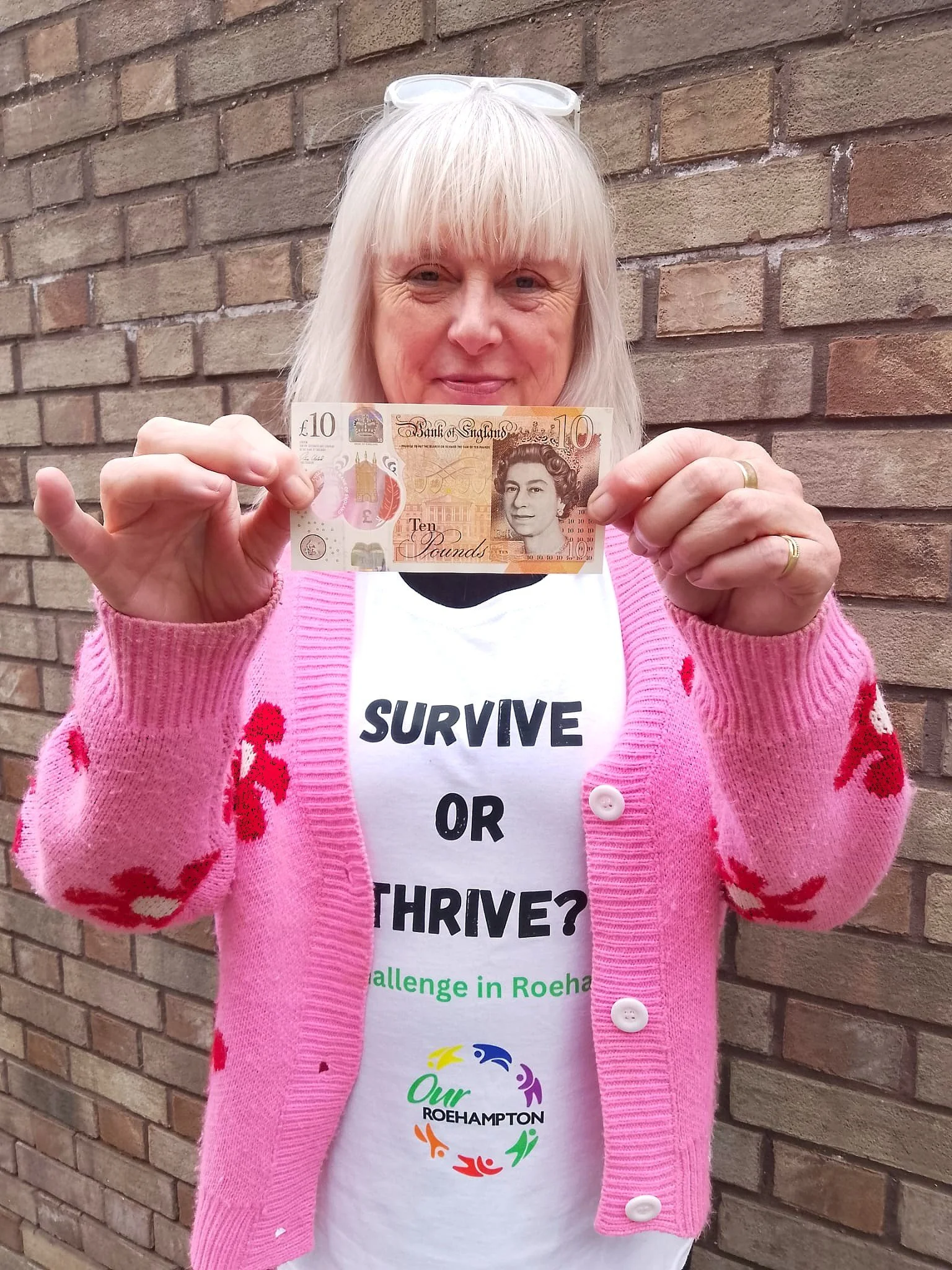The cost-of-living crisis: How Londoners are turning to free and low cost food sources for survival
London, a city renowned for its vibrancy and opportunity, is now facing a harsh reality: the escalating cost of living crisis like many people across the UK. For many residents, especially in Roehampton, the rising prices of essentials such rent, utilities, transport, and most critically, food, are forcing tough choices. The stark reality is that more Londoners are turning to free and low-cost food sources just to get by.
A powerful insight into this situation comes from our administrative and communications officer Siobhan’s recent food challenge, shared on our Instagram profile @our_roehampton_166. Through her weeklong experiment surviving solely on local free and low food sources and a £10 budget, Siobhan offers a poignant look at the growing dependence on community support in these difficult times. She is a long-time resident of the Alton Estate in Roehampton and part-time member of staff for Our Roehampton and knows the local community groups and charities who offer support well.
The rising cost of living in London
The cost of living in London has surged dramatically in recent years, with inflation pushing food prices and household bills to unprecedented levels. According to recent data, UK grocery inflation rose to 4.1% in the four weeks to 18 May 2025, marking its highest point in 15 months. For lower-income families and individuals, this means daily essentials are no longer affordable. The average grocery shopping cost in London can range from £200 to £300 per month per person, depending on shopping habits and store choices.
Siobhan’s food challenge: A reality check
Siobhan’s challenge journey is documented through daily Instagram posts and stories, showcasing not just the quantity but the quality and nutritional limitations faced by those relying on free and low cost food aid.
Her experience highlights several key issues:-
Limited variety and nutrition: Free and low cost food, often supplied through food banks and community kitchens, tend to offer non-perishable, carb-heavy, or processed items. Fresh fruits, vegetables, and proteins are less common, making balanced nutrition a challenge.
Stigma and emotional toll: Siobhan shares the emotional weight and stigma attached to relying on charity. At times social anxiety, shame or embarrassment forces people not to seek help, despite needing it.
Lack of planning: Because food providers themselves don’t know what supplies they would get that week, it is very difficult for people accessing these resources to know what to expect on any given day. This makes food preparation or planning very difficult.
Community spirit: Despite hardships, the community response is inspiring. Local volunteers and community organisations work tirelessly to fill the gap, but the demand continues to outpace supply.
Growing dependence on free and low cost food resources
Siobhan’s challenge is not an isolated case; it reflects a widespread reality. Food banks and community fridges in London have reported surges in demand, with some experiencing a doubling of visitors over the past year. This dependency signals a systemic failure – where wages and benefits have not kept pace with living costs, leaving basic sustenance out of reach for many.
In 2024, a record number of emergency food parcels were handed out in London, with over 454,000 distributed by food banks in the Trussell Trust’s London network between April 2023 and March 2024. This represents a 171% increase compared to five years ago. Furthermore, The Felix Project, London's largest food redistribution charity, reported that 89% of community organisations they support expected increased demand for their food services in 2024. Alarmingly, 83% expressed concern about meeting this demand, and 56% feared they might have to reduce the frequency of their services.
What can be done? And how can you help?
The cost of living crisis requires a multi-faceted response:
Policy intervention: Governments need to increase support through welfare benefits, rent controls, and living wage policies.
Community support: Continued funding and volunteer support for food banks and community initiatives are vital.
Awareness and destigmatisation: Sharing stories like Siobhan’s helps humanise the crisis, encouraging empathy and support from those who have the resources to help.
Siobhan’s food challenge on @our_roehampton_166 is a sobering reminder of the growing struggle faced by many Londoners. The cost of living crisis is pushing more people to depend on free and low cost food sources, highlighting the urgent need for systemic change and community solidarity. As Londoners come together to support one another, the hope is that no one must choose between hunger and dignity.
Follow Siobhan’s journey and support local efforts @our_roehampton_166






